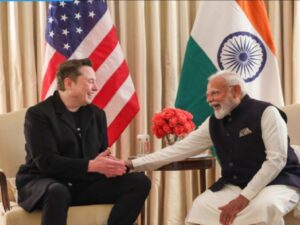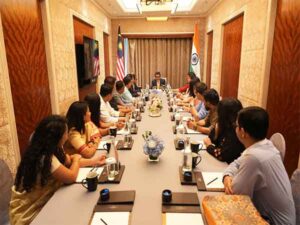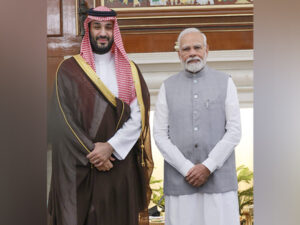NSA Doval highlights need to convert intentions, ideas into actions at USIBC roundtable
Washington [US], January 31 (ANI): National Security Advisor Ajit Doval on Monday (local time) highlighted the need to convert intentions and ideas into actions and specific deliverables through focused steps in a time-bound manner at the inaugural launch of the US-India Initiative on Critical and Emerging Technologies (iCET), according to the sources.
He was at the Chamber of Commerce’s US-India Business Council (USIBC) roundtable conference hosted by US Secretary of Commerce Gina Raimondo and US National Security Advisor Jake Sullivan. Doval and Ambassador of India to the US, Taranjit Singh Sandhu highlighted India’s remarkable capacity for technology development and absorption and emphasized India’s use of technology not only as an enabler of economic growth but as an instrument of social inclusion.
Both officials commended the launch of the iCET, given the natural complementary strengths of the Indian and American economies and the growing strategic convergence between both nations.
Both officials also emphasized India’s growing role as a trusted supply chain partner and contributor in the global technology value chain, and underlined the importance of easing export control measures to facilitate technology access, co-production, and co-development between India and the US.
Doval also met General Mark Milley, Chairman of the Joint Chiefs of Staff of the US where both of them held a “fruitful discussion.”
“General Mark Milley, Chairman of the Joint Chiefs of Staff of the US called on NSA Ajit Doval today. A fruitful discussion on various aspects of India-US bilateral cooperation,” tweeted the Embassy of India, Washington.
In one of the sessions, the roundtable discussed microchips as a critical technology and the important role the US-India relationship could play in building a reliable semiconductor supply chain.
Sanjay Mehrotra, President and CEO of Micron Technology, discussed the importance of government-industry collaboration in this effort.
“It is promising to see the US and India prioritize the necessary discussions and investments that will enable greater semiconductor leadership within and among partner economies.
The US Chamber of Commerce, as a major advocate for the CHIPS and Science Act and now the host of the US-India iCET dialogue, is creating compelling opportunities for the public-private partnership that will ultimately strengthen our economies. Micron looks forward to continuing to work with both governments, the Chamber, and industry as part of this key forum,” said Mehrotra.
Vinayak Dalmia, as part of the Government of India’s business delegation, stated “the potential is limitless for both India and the US to come together to create a semiconductor highway to serve the world. This is a real possibility of a win-win–all that is needed is some imagination and a bold political will and we have both of that today.”
Rajan Mittal, Vice Chairman and Managing Director of Bharti Enterprises, remarked on the success of the iCET in progressing conversations around 5G.
“iCET successfully deliberated on the deployment of Open RAN technology for 5G to create trusted sources, trusted networks, and trusted partners,” said Mittal.
Edward Knight, Executive Vice Chairman of NASDAQ, and Chair of the USIBC Global Board of Directors stated that “both governments choosing USIBC to host this dialogue only reaffirms its position as the leading convener of public-private consultation in the U.S.-India Corridor.”
Knight added, “the US and India pursuing this initiative on critical and emerging technologies demonstrates their growing alignment and sends signals of confidence to the investment community.” Other discussion topics included defence and space technology; roundtable participants underlined the importance of greater cooperation between government, industry, and academia to build a stronger innovation ecosystem that supports American and Indian competitiveness in both traditional and novel defence domains.
Participants also discussed the critical value that startups and VCs play in accelerating innovation and the commercialization of new technologies. Industry representatives noted that shared resolve to facilitate the movement of highly skilled workers and scientific personnel, as well as to ease export control measures and protect intellectual property frameworks, would be key to further developing the US-India innovation ecosystem.
The US Chamber of Commerce will continue conversations on critical and emerging technologies with India as part of its close engagement with its G20 agenda, and as a chair of the B20.






